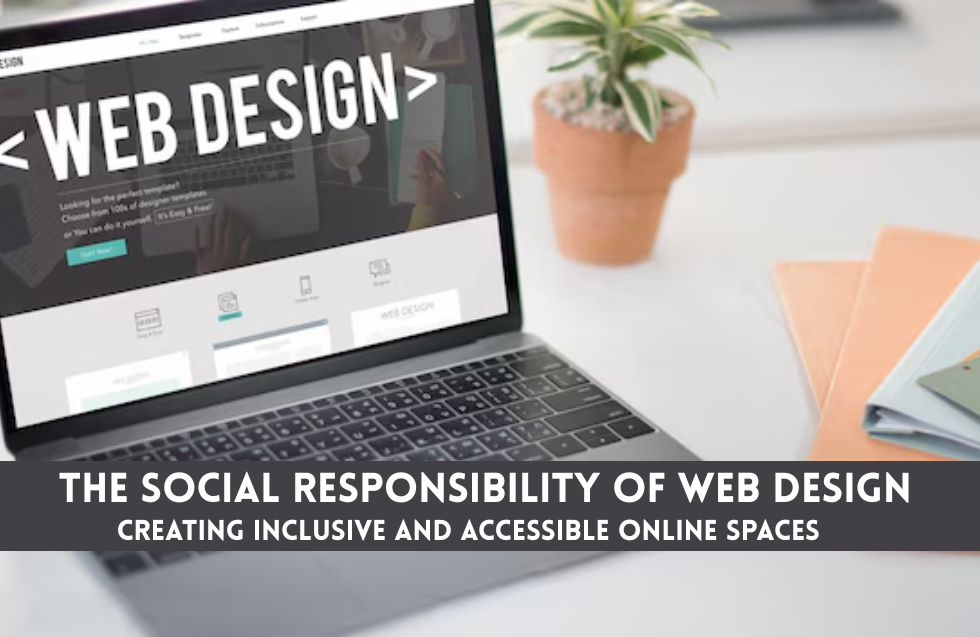In today’s digital landscape, websites serve as the primary interface between businesses and their audiences. Beyond aesthetics and functionality, there lies a deeper responsibility that extends into the realm of social impact. Web design has evolved from being merely about visual appeal to encompassing ethical considerations that affect how different individuals interact with online content.
The concept of socially responsible web design has gained significant traction in recent years. Professional web design Thunder Bay services have been at the forefront of this movement, recognizing that creating accessible digital spaces isn’t just good business—it’s a moral imperative. These specialized teams understand that every design choice can either include or exclude potential users, particularly those with disabilities or technological limitations.
Creating inclusive online environments requires expertise and intention. When businesses partner with professional web designers, they gain access to specialists who understand the nuanced requirements of diverse user groups. These professionals apply their knowledge of accessibility standards such as WCAG (Web Content Accessibility Guidelines) to ensure websites function properly for everyone, regardless of their abilities or circumstances.
Why Accessibility Matters in Modern Web Design
Accessibility in web design refers to creating websites that people with various disabilities can navigate and interact with effectively. This includes considerations for visual impairments, hearing difficulties, motor limitations, and cognitive challenges. Professional web designers implement specific techniques to address these needs.
Contrast ratios between text and background colours must be sufficiently high to accommodate users with visual impairments. Alternative text descriptions for images enable screen readers to convey visual content to blind users. Properly structured heading hierarchies help those using assistive technologies to navigate content logically and efficiently.
The technical aspects of accessibility extend to keyboard navigation, which many users with motor disabilities rely on instead of mouse controls. Simple adjustments like ensuring all interactive elements can be accessed via keyboard commands dramatically improve usability for these individuals.
The Business Case for Inclusive Design
Beyond the ethical imperative, socially responsible web design offers tangible business benefits. Websites that accommodate all users naturally reach wider audiences, potentially increasing traffic and conversions. This inclusive approach translates directly to improved customer satisfaction and loyalty across demographic groups.
Legal considerations also play a role in the business case for accessibility. Many jurisdictions have enacted regulations requiring websites to meet specific accessibility standards. Non-compliance can lead to legal challenges, financial penalties, and damage to brand reputation that could have been avoided through proper design implementation.
Professional web designers stay current with these evolving legal requirements, helping businesses mitigate risks while simultaneously improving user experiences. Their expertise transforms what might seem like regulatory hurdles into opportunities for meaningful engagement with diverse audiences.
Technology Choices and Environmental Impact
Socially responsible web design extends beyond human accessibility to environmental considerations. Website efficiency directly impacts energy consumption—a factor that conscientious designers take seriously. Professional web development teams optimize code, compress images, and implement caching strategies to reduce the computational resources required to deliver content.
These technical optimizations result in faster loading times, which benefit users while simultaneously reducing server energy consumption. The environmental impact of digital services is often overlooked, but efficient websites contribute to sustainability efforts by minimizing unnecessary power usage across millions of user sessions.
The choice of hosting providers represents another avenue for environmental responsibility. Professional web designers can guide businesses toward hosting solutions powered by renewable energy, further reducing the carbon footprint associated with maintaining an online presence.
Cultural Sensitivity and Global Accessibility
Modern websites often serve global audiences, introducing additional layers of social responsibility related to cultural sensitivity. Professional web designers understand that colour choices, imagery, and even layout preferences vary significantly across cultural contexts. What works effectively in one region might confuse or even offend users in another.
Multilingual support represents another crucial aspect of globally accessible design. Professional implementation includes not just translation capabilities but proper handling of right-to-left languages, character sets, and culturally appropriate formatting for dates, currencies, and other regionally variable content.
These considerations require expertise beyond basic design skills, highlighting the value that specialized web design services bring to businesses looking to connect responsibly with diverse international audiences.
The Future of Socially Responsible Web Design
As technology continues to evolve, new challenges and opportunities in socially responsible web design emerge constantly. Voice interfaces, artificial intelligence, and immersive technologies like virtual reality introduce novel accessibility considerations that forward-thinking web designers are already addressing.
Professional web development teams remain at the cutting edge of these innovations, adapting accessibility practices to encompass emerging technologies. Their specialized knowledge helps businesses implement new features without sacrificing inclusive design principles or leaving vulnerable users behind.
The evolution of socially responsible web design reflects a broader societal shift toward recognizing the importance of digital inclusion. As online spaces become increasingly central to daily life, ensuring equal access becomes not just a design consideration but a fundamental social value.
Conclusion
Creating truly inclusive and accessible digital environments requires specialized knowledge, technical expertise, and ethical commitment. Professional web design services provide these essential elements, helping businesses meet their social responsibilities while simultaneously improving user experiences for all audience segments. By investing in socially responsible web design, organizations demonstrate their commitment to equality, accessibility, and thoughtful digital citizenship. Contact a professional web design team today to assess how your online presence can better serve all users while making a positive contribution to the digital landscape.












